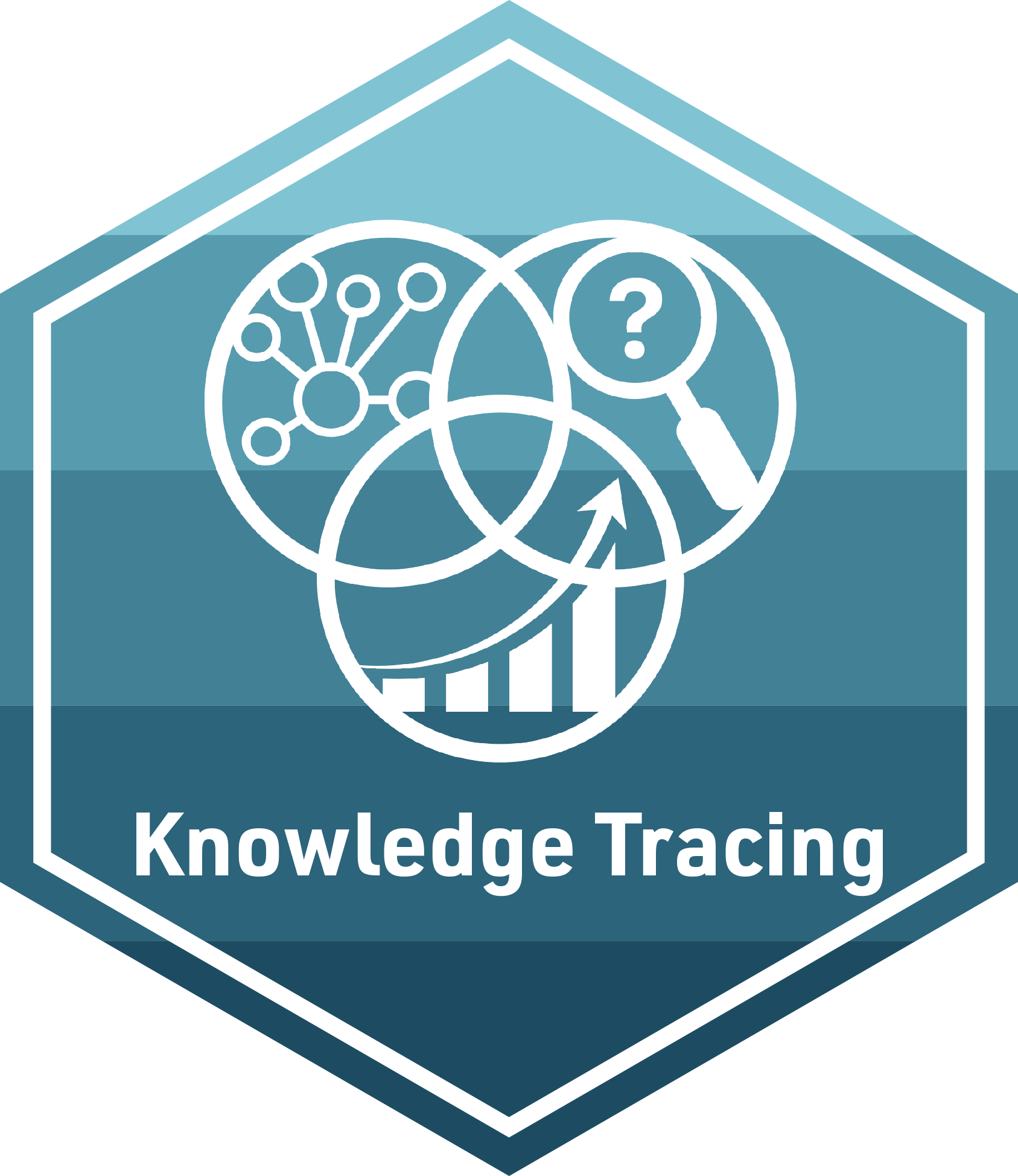Knowledge Tracing

The Knowledge Tracing Modules are designed to provide LASER Scholars with a comprehensive understanding and hands-on experience in various knowledge tracing methods used in digital learning platforms. Beginning with Bayesian Knowledge Tracing (BKT), scholars will build and explore classic BKT models using Python, gaining insights into its application across learning scenarios. The program then introduces Performance Factor Analysis (PFA) and Logistic Knowledge Tracing (LKT), where scholars will clean datasets and build LKT models, learning to analyze student performance involving multiple skills. Next, the modules cover Item Response Theory (IRT), equipping scholars with the principles and skills to validate educational assessments. Finally, the we wrap up this unit by diving into Deep Knowledge Tracing (DKT), where scholars will engage with deep neural network models, understanding their strengths and limitations. Throughout the modules, case studies, essential readings, and badge activities in ASSISTments will reinforce learning and application, preparing scholars to utilize these techniques effectively in educational research and practice.
| Github |
Repository for Instructors | |
| Posit Cloud | Workspace for Learners |
Module 1: Bayesian Knowledge Tracing
Bayesian Knowledge Tracing (BKT) (Corbett and Anderson 1994) is the most widely used student knowledge modeling framework within digital learning platforms. The BKT model provides decent-quality predictions of future performance within or outside the learning systems, interpretable models, meaningful parameters, and the ability to be applied to a range of learning situations. The goal of our Essential Readings and Case Study is to help LASER Scholars gain a theoretical understanding and practical experience with BKT. Our BKT Case Study is based on Zambrano, Zhang, and Baker (2024). You will use Python to build classic BKT models and explore some of the variations. Finally, you will complete the BKT Badge activity in ASSISTments and develop research questions utilizing a Large Language Model.
| Conceptual Overview |
Bayesian Knowledge Tracing | |
| Code Along | BKT with ASSISTmentsBKT-BF walkthrough-PCBKT-BF walkthrough Mac | |
| Readings & Reflection |
Essential Readings | |
| Case Study | Bayesian Knowledge Tracing with Python | Answer Key | |
| Badge | Applying BKT in Practice | |
| Module Survey | Feedback Form After Finishing Module |
Module 2: Performance Factor Analysis
Module 2 introduces Performance Factor Analysis (PFA) and logistic knowledge tracing (LKT) as alternative knowledge tracing methods. LKT utilizes Logistic Regression to investigate students’ performance. Unlike BKT, each item may involve multiple skills or knowledge components (KC). With the case study, you will learn to clean the dataset and build an LKT model. Our case study is based on the work of Tirronen and Tirronen (2020). This paper discusses the application of LKT in the programming education field and the case study will guide you to practice building your LKT model in R with the example dataset. Like module 1, you will complete the LKT Badge activity in ASSISTments and develop research questions utilizing a Large Language Model.
| Conceptual Overview |
Logistic Knowledge Tracing and PFA | |
| Code Along | LKT walkthrough | |
| Readings & Reflection |
Essential Readings | |
| Case Study | PFA case study | |
| Badge | LTK and PFA with ASSISTments | |
| Module Survey | Feedback Form After Finishing Module |
Module 3: Item Response Theory
Module 3 wraps discuss Item Response Theory, a classic approach for assessment in tests. It is used to assess students’ current knowledge of a topic and it assumes no learning is occurring between items. Through exploring foundational principles, and building models in the case study, this module will equip you with valuable skills to understand the validity of educational assessments. Finally, the badge activity will help you reflect on how these techniques could be applied to research and practice.
| Conceptual Overview |
Item Response Theory and ELO | |
| Code Along | Coming soon! | |
| Readings & Discussion |
Essential Readings | |
| Case Study | IRT in R | |
| Badge | Apply IRT in practice | |
| Module Survey | Feedback Form After Finishing Module |
Module 4: Deep Knowledge Tracing
Module 4 discusses the application of deep neural networks in knowledge tracing, called Deep Knowledge Tracing (DKT). It is a growing area and has dozens of variants. While deep neural networks are becoming popular and every paper claims good performance, we must be cautious and carefully understand this technique and its strengths and weaknesses before using it. Our essential readings and case studies cover selected current issues and approaches in Deep Knowledge Tracing (DKT). In the hands-on activities, you’ll be working to add a dataset to the implementation of the DKT model from Gervet et al. (2020). Finally, the badge activity will help you reflect on how these techniques could be applied to research and practice.
| Conceptual Overview |
Intro to Deep Knowledge Tracing | |
| Code Along | Coming soon! | |
| Readings & Discussion |
Essential Readings | |
| Case Study | DKT in Python | |
| Badge | Apply DKT in Practice | |
| Module Survey | Feedback Form After Finishing Module |
Microcredential
The culminating activity for the Knowledge Tracing Modules is designed to provide you some space for independent analysis of a self-identified data source. To earn your KT Microcredential, you are required to demonstrate your ability to formulate a basic research question appropriate to a KT context, wrangle and analyze relational data, and communicate key findings. Your primary goal for this analysis is to create a simple data product that illustrates key findings by applying the knowledge and skills acquired from the essential readings and case studies.
| Microcredential | Coming soon! |